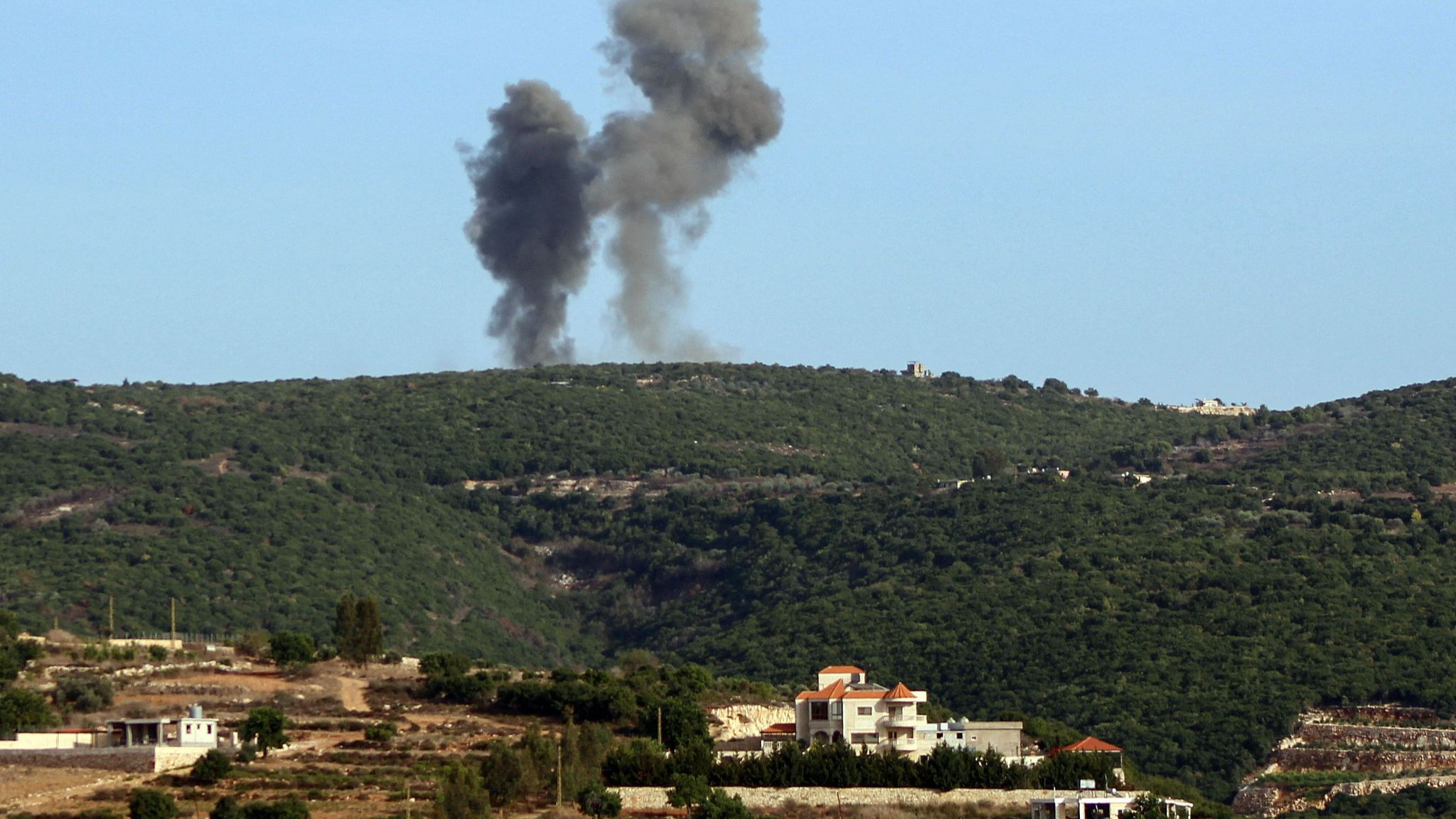BEIRUT: Israel killed a top Hezbollah commander and other senior Hezbollah figures in an airstrike on Beirut on Friday, vowing to press on with a new military campaign until it secures the area around the Lebanese border.
Hezbollah on Friday night mourned the acting commander of its elite Radwan Force, Ibrahim Akil, saying in a statement, “Today, the great jihadist leader Ibrahim Akil joined the procession of his brothers, the great martyr leaders, after a blessed life full of jihad, work, wounds, sacrifices, risks, challenges, achievements and victories.”
Lebanon’s Health Ministry said at least 14 people died and 66 were injured in the strike, and the toll was expected to climb as rescue teams worked through the night.
Israeli Defense Minister Yoav Gallant, who said this week that Israel is launching a new phase of war on the northern border, posted on X, “The sequence of actions in the new phase will continue until our goal is achieved: the safe return of the residents of the north to their homes.”
Akil’s killing was the second of a senior Hezbollah commander since the start of the Israel-Palestine conflict. An Israeli strike on Beirut in July killed Fuad Shukr, a top operations chief for the movement.
Additionally, the Friday strike followed two waves of explosions on Tuesday and Wednesday involving communication devices used by Hezbollah members, which killed dozens and injured thousands. Hezbollah blamed the explosions on Israel; however, the latter has neither confirmed nor denied its involvement.
James M. Dorsey, adjunct senior fellow with the S. Rajaratnam School of International Studies, told CGTN that the deadly explosions of communication devices not only lifted warfare to a totally new level but also heightened the risk to innocent civilians caught in the explosions, because Israel has “no control (over) who is in possession of the device at the moment of explosion.”

Smoke billows from the site of an Israeli airstrike on the outskirts of Yater, Lebanon, September 20, 2024. /CFP
‘This must stop now’
“We are not afraid, but we want a solution. We cannot continue with the country like this,” said Alain Feghali, a resident of Beirut who spoke to Reuters. “War? I don’t know if it started or not, but nothing is reassuring. It is clear that the two sides will not stop.”
The UN Special Coordinator for Lebanon, Jeanine Hennis-Plasschaert, stated that Friday’s strike in a densely populated area of Beirut’s southern suburbs was part of “an extremely dangerous cycle of violence with devastating consequences. This must stop now.”
The current conflict between Israel and Hezbollah, ignited by the Israel-Palestine conflict, has intensified significantly this week, heightening concerns that it could widen further.
The UN Security Council met on Friday in an emergency session on Lebanon, following the recent escalation of conflict between Israel and Hezbollah. The meeting again urged the relevant parties to de-escalate immediately and find a diplomatic solution before the world marked the annual International Day of Peace on Saturday, whose theme in 2024 is “Actions for Peace: Our Commitment to the Global Goals.”
At the UN Security Council meeting, Rosemary DiCarlo, UN under-secretary-general for political and peacebuilding affairs, said alarming developments in Lebanon and the region “have been a repeated breach of the cessation of hostilities and in violation of (Security Council) Resolution 1701.”
Speaking on behalf of the Arab Group, Syria’s permanent representative to the UN, Koussay Aldahhak, stated that the devastating recent attacks were conducted without any regard for international law or humanity.
He said the Arab Group demands the Security Council condemn this cyberterrorism and Israel’s aggression against the Palestinian people in Gaza and attacks on other countries, including Syria.
Stephane Dujarric, spokesman for UN Secretary-General Antonio Guterres, urged all parties to de-escalate immediately, exercise “maximum restraint,” and “immediately return to the cessation of hostilities and to fully implement Security Council Resolution 1701.”
Warning that the region is “on the brink of a catastrophe,” he emphasized that all efforts should focus on finding a diplomatic solution.





















